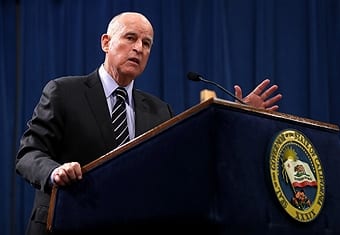 JOIN OUR WEBINAR ON WEDNESDAY, MAY 31st!
JOIN OUR WEBINAR ON WEDNESDAY, MAY 31st!
Charter schools face many challenges during their stages of growth – whether start-up, expansion, or mature stage. It’s important for charter leaders to be prepared for each phase. Our webinar will focus on best practices charter leaders can implement today to help positively impact growth strategies for charter schools.
Join us on Wednesday, May 31st at 10:30 a.m. PDT / 1:30 p.m. EDT with panelists Bonnie Bensen, the CFO of Fortune School, Kapil Mathur, the Executive Director of Orange County Academy of Sciences and Arts, and Stuart Ellis, Charter School Capital’s President and CEO. They’ll be sharing their strategies around growth and replication, funding options specific to each growth stage and lessons learned from other charter school leaders.
REGISTER TODAY!
Month: May 2017
 Many charter leaders around the country joined us on a recent webinar to hear from experts about how Federal and State policies will impact charter schools.
Many charter leaders around the country joined us on a recent webinar to hear from experts about how Federal and State policies will impact charter schools.
Panel speakers included our President and CEO Stuart Ellis, as well as two of the leading experts on charter school policy and law; Todd Ziebarth, Senior VP of State Advocacy and Support at the National Alliance for Public Charter Schools and John Cairns, Attorney and Consultant at John Cairns Law.
Looking at the current landscape for charter school policy and law around the country, the general feeling for charter school leaders is that they are in a “wait and see” mode. It is not yet known what the total impact on budget for education will be at the Federal level, or how the new administration’s support of charter schools will impact discussions at the state level around education reform. Ziebarth thinks we’ll know more about how these issues will be approached in the next legislative cycle. This will also impact funding available from government agencies (subsidies or direct grants) as well as the general market.
Meanwhile, momentum with charter school growth continues to gather speed with five states enacting charter school law in 2010. Maine and Washington passed their laws in 2011 and 2012 (respectively), and the unconstitutional ruling in 2015 by the Supreme Court was overturned in 2016. Also, Kentucky enacted their law this year, becoming the 44th state to have charter school law on the books. Charter opponents will continue to show up but this is a common strategy. When new charter laws goes into effect, opponents try to shut them down locally after failing at the legislative level. There is momentum toward passing charter law in five of the six states currently without charter law. Additionally, there has been progress made in states with existing laws, such as lifting caps on charter schools, strengthening school and authorizer accountability and improving facilities support.
In some cases, state legislatures continue to oppose charter school law, so there are some ongoing challenges. In Rhode Island, Illinois, Connecticut, and California there has been some success in pushing back against charter law, cutting funding or eliminating state authorizers.
At the Federal level there are a few key takeaways. Charter schools have a high public profile in the current administration and there are no major changes between the fiscal ’17 and fiscal ’18 budgets. Support for facilities grants remains the same, however specific grants for teacher trainings, after school and summer programs and aid in programs to first-generation and low income students have been cut. The Department of Education federal funding faces a 14% cut which could impact many key programs. Keep in mind, less than 10% of all K-12 funding comes from Federal funds currently.
On the facilities front, the federal government is showing support for facility development, but may pull back on that in the future. The staff person in Washington who oversees this thinks that there won’t be any significant decreases in funding, rather there will be some competition over where that money will get allocated. Rather than spreading the funding out nationwide, he thinks federal will favor funding specific large-scale projects in selected states.
Overall, the federal government is proposing increased charter school funding at roughly $168 million. These funds would help existing schools replicate and new charters start-up. It will also help facilities programs. Updates to federal facilities financing include the Per-Pupil Facilities Aid Program which provides competitive grants to help states administer “per pupil facilities aid” for charter schools. This appears to be the number one priority for most states as they head into legislative sessions to improve facility support for charters.
The progress being made at the state level will continue to build, given the hard work by charter advocates across the country. Charter school leaders will continue to make progress improving state policy environment for charters, such as more facilities support, clearer accountability requirements and enhanced flexibility. At the same time, opponents to charter school law are getting more sophisticated in their anti-charter strategies and tactics. An example of this is pushing legislation that would re-regulate charters through more “transparency.” It’s clear we will continue to see resistance to the charter school movement’s forward momentum.
At this point, the longstanding impact of the new administration is still unknown although typically charter schools have had a lot of support from recent administrations. While the amount of money historically spent by opponents of charter schools to campaign against them has been high, the population of charter schools has continued to grow in spite of it (from 3,000 charter schools 10 years ago to nearly 7,000 charters today). There are more than 3 million students currently attending charter schools today, who are choosing the best public education option to suit their families. The overwhelming desire and high number of students on charter wait lists – more than one million – highlights that families want the choice for the best public education available.
You can view the webinar recording on-demand and access presentation slides here.
 Applications to the California School Facility Grant Program (SB740) are now being accepted starting May 18th. As part of our efforts to serve as a reliable resource for charter school leaders, we wanted to ensure charter schools in California are aware of this grant opportunity. Applications for 2017-18 are open now and close at 5:00 p.m. on June 1st, 2017.
Applications to the California School Facility Grant Program (SB740) are now being accepted starting May 18th. As part of our efforts to serve as a reliable resource for charter school leaders, we wanted to ensure charter schools in California are aware of this grant opportunity. Applications for 2017-18 are open now and close at 5:00 p.m. on June 1st, 2017.
The California School Facility Grant program (SB740) was created to provide annual assistance with facilities rent and lease expenditures to qualifying charter schools. Eligible charter schools typically receive $750 per unit of classroom-based average daily attendance, or up to 75% of their annual facilities rent and lease costs for the school. New funding rounds occur annually, and schools can turn in online applications to the California School Finance Authority (CSFA). The CSFA uses prior year data on pupil eligibility for Free or Reduced-Price Meals (FRPM) program to determine the charter school’s eligibility. At least 55% of the student enrollment must be in the FRPM program, or located in an elementary school attendance area where at least 55% of students enrolled are FRPM eligible in order to qualify.
For more information on the grant program, an FAQ with a full list of eligibility requirements is available here.

The Governor has released his May Revision, which is an update to the budget that he introduced in January. This new “budget” takes into account tax receipts and revenue projections that the administration has assumed. With revenues up slightly, the revision has several major changes. Below are some of the highlights:
- Dollars to fund the minimum wage increase to $11 in 2018
- Expansion of health care coverage to undocumented children
- Providing dental benefits to adults covered by Medi‐Cal
- The first cost‐of‐living adjustment for Supplemental Security Income/State Supplementary Payment (SSI/SSP) recipients since 2005
- California’s first‐ever Earned Income Tax Credit to help the poorest working families
For education specifically, the May Revision will increase funding for the Local Control Funding Formula by $661 million. That is added to the $770 million included in the January budget proposal to bring the additional funds going to the Local Control Funding Formula this year to almost $1.4 billion. This money will go out on an ADA basis and be very flexible in terms of what it can be used for. The Governor has also reinstated the three year “deal” with the early education community that he suspended in his January budget. This means that early education will see an increase of $500 million to fund an increase in the standard reimbursement rate and the regional market rate, as well as funding for an additional 2,959 slots for full day preschool.
The legislature is beginning hearings on the Governor’s May Revision. Budget subcommittees in both houses of the legislature will hear and vote on the measures and advance them to the full Budget Committees so that the final budget can be approved by June 15th.
To see the full text of the Governor’s May Revision go to the state’s budget page on their website.
We’re heading back to Washington D.C. June 11-14 for the National Charter Schools Conference put on by the National Alliance for Public Charter Schools. This the annual conference where charter leaders and those supporting the charter movement come together to share ideas and learn. The Charter School Capital team is excited to continue its long-standing key level sponsorship support for the conference and the national charter school movement.
This year our team is presenting two informative breakout sessions to help charter leaders in both facilities options available and marketing efforts that benefit student enrollment marketing. Our first breakout on Monday, 6/12 is on funding options for facilities “I Need a Better Facility for My School. Now What?” with our President and CEO Stuart Ellis and Mike Morley, President and CEO at American Charter Development. Our second breakout session is on Tuesday, 6/13, “Digital Marketing 101 for Charter Schools – What You Need to Be Successful,” led by our VP of Marketing Kim Brater joined by Michael Barber, Founder and President of barber+hewitt and Scott Kauffman, Partner at Lucid Agency.
This year’s theme is “Educate. Innovate. Engage” to continue with the goals of greater growth for charter schools and offering innovative opportunities for sessions that strive to tackle many of the issues and challenges facing charter school leaders today. Last year’s conference in Nashville had more than 4,500 attendees, 130 breakout sessions and lots of opportunity for connecting with fellow charter leaders. The 2017 conference should be even bigger and better as charter leaders descend upon our nation’s capital.
Check back as our team will continue to share information about the conference on our blog and social media (if you haven’t followed us on Facebook, Twitter, LinkedIn or other channels check us out). We look forward to seeing you in June at the conference in Washington, DC!